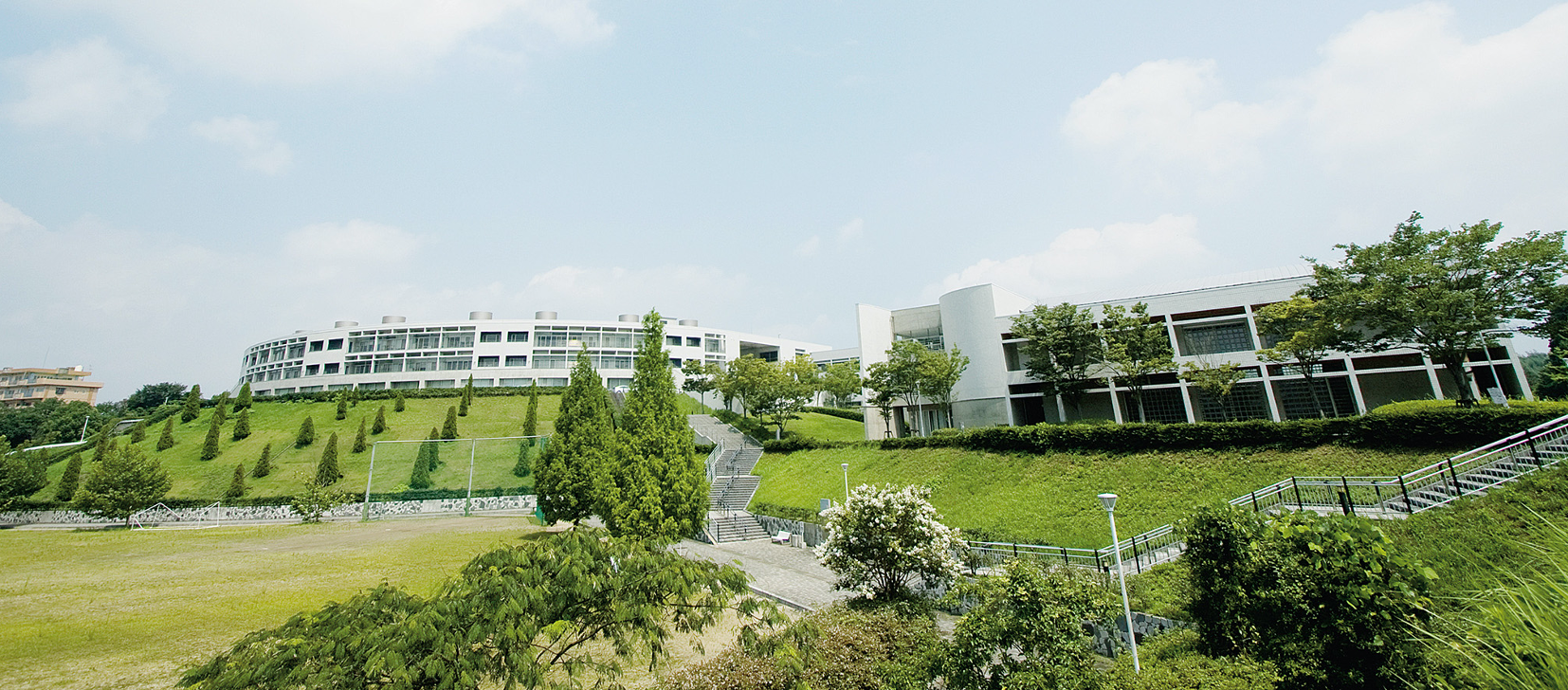Clinical Practicums and Skills Laboratories
Clinical Practicums and Skills Laboratories
Nursing Practice Characteristics
Clinical practice begins in the freshman year and increases in length, intensity and variety each year thereafter. Our Clinical Instruction Center is next to Oita Prefectural Hospital for students to use during practice there. Students also practice at over 100 other health care facilities in Oita Prefecture.
Five clinical practice stages are aligned with student learning levels and progress over four years. Stage 1 introduces nursing and individual patient care. The scope of nursing practice then expands to communities and systems. In stage 5 students plan and implement their own study program to enhance their professional awareness.
|
Clinical Practicums |
||||
|
Stage 1 |
Freshman |
Fundamental Nursing |
Required |
2 weeks |
|
Stage 2 |
Sophomore |
Nursing Process |
Required |
2 weeks |
|
Stage 3 |
Junior |
Adult Nursing 1 |
Required |
2 weeks |
|
Adult Nursing 2 |
Required |
2 weeks |
||
|
Gerontological Nursing |
Required |
1 week |
||
|
Pediatric Nursing |
Required |
2 weeks |
||
|
Maternity Nursing |
Required |
2 weeks |
||
|
Mental Health & Psychiatric Nursing |
Required |
2 weeks |
||
|
Stage 4 |
Senior |
Community Health Nursing |
Required |
1 weeks |
|
Home Health Care Nursing |
Required |
1 weeks |
||
|
Stage 5 |
Senior |
Comprehensive Nursing |
Required |
2 weeks |
|
Skills Laboratories |
||
|
Sophomore |
Basic Nursing |
Elective |
|
Junior |
Clinical Nursing |
Required |
|
Senior |
Applied Nursing |
Elective |
Stage 1: Freshmen
Fundamental Nursing Practicum
Students are assigned a single inpatient and apply newly-learned nursing knowledge and skills to understand human health as a focus of nursing care from the perspective of the patient’s daily life. They learn to think about patient nursing needs by considering the impact of illness on their lives.
Stage 2: Sophomores
Nursing Process Practicum
Students use nursing theories learned in lectures and a patient-centered approach to professionally assess and understand patient nursing needs. They learn to assess individual patients through observation, communication, auscultation and obtaining patient information from medical records. Through this process students learn to comprehensively understand and analyze the physical, psychological, and social needs of their patients.
Skills Laboratory 1: Basic Nursing
Students select a nursing skill to improve, such as environmental adjustment, meal assistance, elimination assistance or activity/ rest assistance. They acquire the chosen skill through repeated practice and a case study evaluation.
Stage 3: Juniors
Specialized Nursing Practice:
Students complete six clinical practicums in 11 weeks to learn nursing care in specialized areas
Adult Nursing Practicum I
Students practice nursing care in acute situations. They learn to care for hospital patients undergoing surgery or treatment for sudden illness, which can cause physical and mental instability.
Adult Nursing Practicum II
Students practice nursing care for patients with chronic disease. The number of adults with lifestyle-related diseases such as diabetes and kidney disease increases every year.
Gerontological Nursing Practicum
Students learn nursing care for older adults in nursing homes. They experience multi-professional collaboration that supports the quality of life of older adults.
Pediatric Nursing Practicum
Students care for healthy infants and toddlers to learn about child growth and development. Then they practice nursing care with ill children and their families using the assistance techniques necessary for the illness and development of each child.
Maternity Nursing Practicum
Students learn about the physiological changes and psychological and social characteristics of mothers and children during pregnancy, delivery, and postpartum. They also learn how to help mothers and their families acquire self-care skills and parental roles.
Mental Health & Psychiatric Nursing Practicum
Students form supportive interpersonal relationships with people with mental illness. They learn to understand their physical, psychological, and social needs and to provide them with nursing care and support in their daily lives.
Skills Laboratory 2: Clinical Nursing
Students select a nursing skill to improve, such as patient hygiene and clothing assistance, breathing and circulation control, medication administration, managing biological functions or life-saving first aid. They acquire the chosen skill through repeated practice and a case study evaluation.
Stage 4: Seniors
Community Health Nursing Practicum
Students practice home visits and health counseling and education at public and municipal health centers and learn the characteristics, culture, and lifestyle of the local community. They also learn methods of working with individuals, families and communities as an extension of nursing.
Home Health Care Nursing Practicum
Students learn to provide care at visiting nursing stations so the ill and disabled can lead better lives at home. They come to understand home health care nursing by learning about the role of hospitals, welfare facilities, and government agencies in comprehensive community-centered home-based care.
Stage 5: Seniors
Comprehensive Nursing Practicum
Students select their own training facility, make their own personal training plan and practice independently with the facility staff. This fosters independence and positivity and culminates four years of clinical practice.
Skills Laboratory 3: Applied Nursing
Students select a nursing skill to improve, such as emergency care, managing biological functions, infection prevention, safety management or ensuring patient comfort. They acquire the chosen skill through repeated practice and a case study evaluation.

